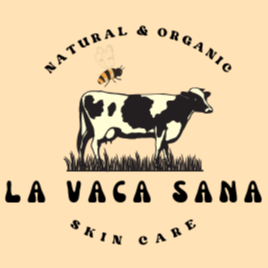The process of turning a beautiful slab of natural suet with its intricate web of connective tissue, into a pure, glistening block of white tallow is slow, diligent, and deliberate. The suet is acquired from a grass-fed cattle farm in the south west region of Western Australia, local to our home, minimal transportation is considered to reduce emissions whilst supporting farmers with nose-to-tail use of their stock.
We operate a plastic free kitchen and the suet will only touch high quality wood boards, stainless steel bowls and knives, glass bowls, and unbleached organic cloth. Plastic is absolutely avoided due to the degrading nature with its usage, which will leak micro-plastics and harmful endocrine disruptors into the contents it contacts.
The rendering and purification process begins with the manual break down of connective tissue and the suet is placed in a low heat melting bowl with filtered water and Celtic sea salt. This is known as the 'wet-method' and the salt helps to draw any water and liquid out of the fat. This product will become completely waterless by the end of the third purification and this is what gives the tallow its extended shelf life. Celtic sea salt contains 92 trace essential minerals that are important for cell hydration, bone density and skin health. The low heat over an extended period is an important factor in the quality of the tallow as rushing this process and applying too much heat will damage the dense nutrient content. The fatty acids and fat soluble vitamins are what make tallow so nourishing to the skin. Read more about tallows incredible nutrients on our page here.
The tallow is then set aside to solidify into a 'tallow cake' and minuscule impurities that set to one side are removed, leaving only pure tallow in the solidified product. The entire purification process is repeated two more times, ensuring the tallow that is used in the final skincare products and soap bars is truly faultless and perfected.
The tallow is blended with the appropriate organic oils according to the product recipe, before being placed in amber glass jars. The glass jars are sturdy, able to reject UV rays (to protect the antioxidant content in the oils and tallow), and reusable for customers. We love to keep old jars for kitchen storage, to collect fats and oils after roasting, especially duck fat (which is expensive to buy in markets!), and to use for candle making. No plastics are used for tallow storage as plastic leaches when heated and the product is poured when warm.
Due to the waterless nature of tallow balm, which gives the product its extended shelf life, it's advisable to keep the jar away from any water source (particularly tap water) which can harbour bacteria and turn the product rancid. The jar should be kept out of direct heat or sun and not be left in cars for extended periods. Lastly, clean hands are key when applying your balm. As with all facial products, washing and drying your hands before digging into the jar is important to reduce the chances of spoilage. If cared for well, the product will last a year, if you don't use it all up by then, which most people do!
At La Vaca Sana, we pride ourselves on customer transparency, traditional and remedial recipes, environmental consciousness, sustainability approaches, and support for local farmers. A low tox lifestyle that focuses on longevity and wellness starts with self care, as its something we will do each day. You can start your affordable, toxin free habits here.

